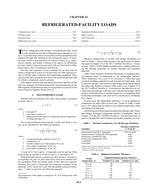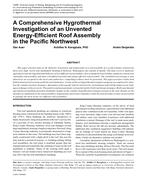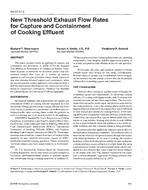Click here to purchase
In underground mines, lower worker productivity, illness, and potentially death can result from poor working environment conditions. It is therefore extremely important to design, install, and manage underground ventilation systems with the necessary care and attention. Excess humidity, high temperatures, inadequate oxygen, and excessive concentrations of potentially dangerous gases can significantly affect the quality of the working environment if not properly controlled. Ventilation and air cooling are needed in underground mines to minimize heat stress and remove contaminants. As mines become deeper, heat removal and ventilation problems become more difficult and costly to solve. Caution: This chapter presents only a very brief overview of the principles of mine ventilation planning. The person responsible for such planning should either be an experienced engineer, or work under the direct supervision of such an engineer. Several English-language texts have been written on mine ventilation since 1980 (Bossard 1982; Hall 1981; Hartman et al. 1997; Hemp 1982; Kennedy 1996; McPherson 1993; Mine Ventilation Society of South Africa 1982; Tien 1999). The ventilation engineer is strongly encouraged to study these references.
Definitions
Sources of Heat Entering Mine Air
Heat Exchangers
Mine-Cooling Techniques
Selecting a Mine-Cooling Method
Mechanical Refrigeration Plants
Mine Air Heating
Mine Ventilation
No. of Pages: 14
Citation: 2019 ASHRAE Handbook¿¿¿HVAC Applications
Product Details
- Published:
- 2019
- ISBN(s):
- 9781947192126
- Number of Pages:
- 14
- Units of Measure:
- Dual
- File Size:
- 1 file , 720 KB
- Product Code(s):
- D-A302019IP


